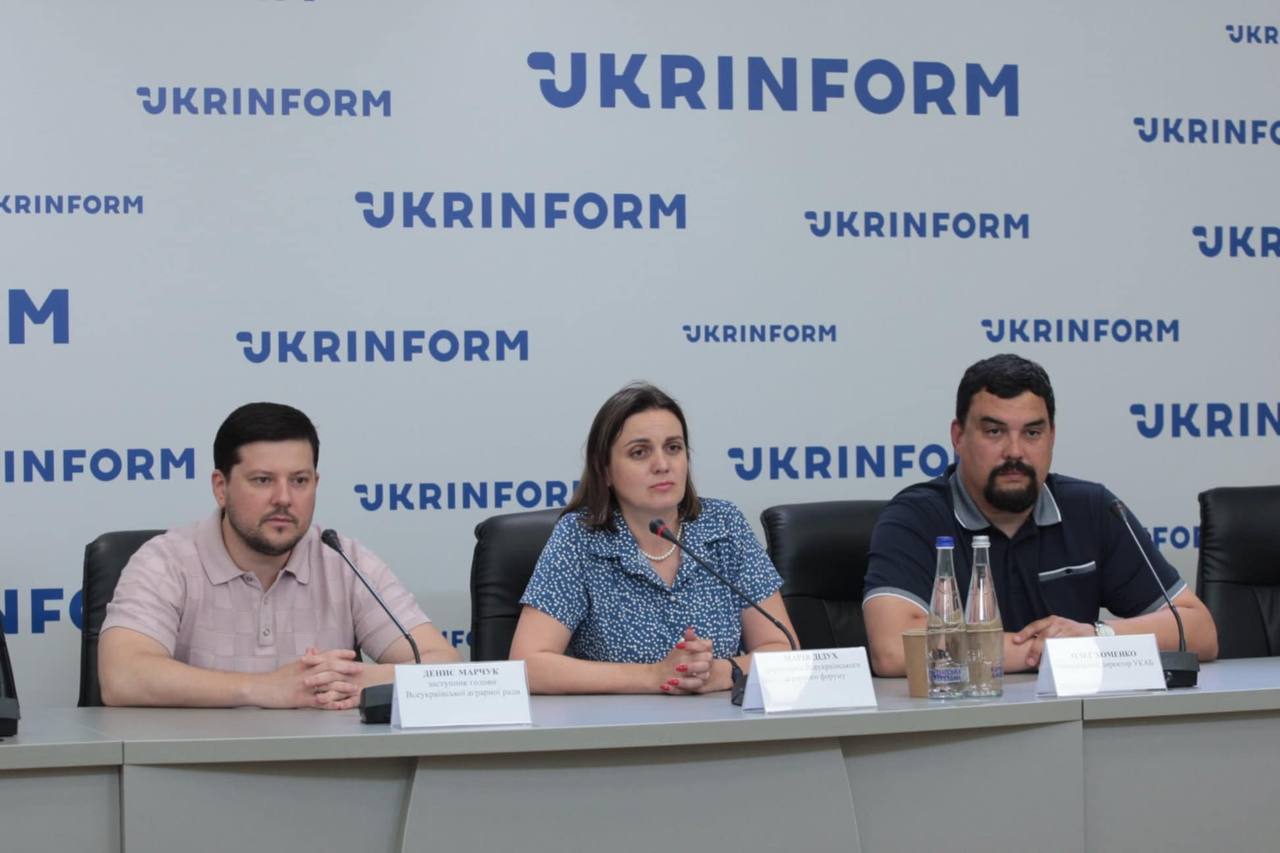Today, during a press conference, leading agrarian associations has appealed to the Chairman of the Verkhovna Rada of Ukraine and people's deputies to take into account the European experience and implement fair approaches to excise taxation of the agricultural sector.

In the near future, the Verkhovna Rada of Ukraine will vote in the second reading on the draft Law No. 11256-2 "On Amendments to the Tax Code of Ukraine on the Implementation of the Provisions of the EU Law on Excise Tax", which provides for an increase in the excise tax on diesel fuel from 139 to 330 euros per thousand liters till 2028.
Under normal circumstances, excise tax revenues are used to maintain and repair roads, but agricultural machinery involved in field cultivation does not travel on public roads, and fuel for it is proposed to be taxed at higher rates. This is what caused outrage among agricultural producers.
Maria Didukh, Director of the Ukrainian Agrarian Forum, emphasized the unfairness of such an increase, noting that Ukrainian farmers had already paid twice as much excise tax as their European counterparts, and the new law would increase this burden by 5 times.
"We are appealing to members of parliament to apply a reduced excise tax rate on fuel. In early June, the draft law No. 11256-2 was adopted in the first reading, which reduces the excise tax on fuel for more than twice. All this is happening because of European integration requirements and the need to fill the budget to finance the army. Given the critical importance of having the resources to finance the army, raising excise rates during martial law may be justified. However, it is unfair and unacceptable for farmers and other consumers who do not use public roads after the war, and, moreover, it is harmful to the national interest by making such industries uncompetitive. And this is exactly what the draft law envisages - an increase in the rate to EUR330 not only for wartime, but forever. We want a fair harmonization of legislation and the same working conditions, or almost the same, as in the EU after the end of martial law. In particular, the EU provides for a reduced excise tax rate on fuel for agricultural producers," Didukh said.
She also added that Directive №2003/96/EU provides for a minimum excise tax of 21 euro per 1,000 liters for agricultural producers, which was significantly lower than the new proposed excise tax in Ukraine.
Denys Marchuk, the UAC Deputy Chairman added that a gradual increase in the excise tax to 330 euros per thousand liters would create uncompetitive conditions for Ukrainian business. "In the EU countries, the excise tax on fuel is much lower: in Romania it is 21 euros, in the Czech Republic - 54 euros, in Lithuania - 60 euros, and Polish farmers do not pay this tax at all due to a special excise tax refund. Today we pay 139 euros and we are already losing at the start," said Marchuk.
Oleh Khomenko, Director General of the Ukrainian Club of Agribusiness noted that the increase in the excise tax would certainly increase the cost of agricultural products. "Increasing the excise tax will lead to higher production costs and lower competitiveness of Ukrainian farmers. We understand the need to harmonize legislation with EU requirements and fill the state budget to support the army, which is the purpose of this draft law, but we cannot agree to an excise tax of 330 euros when in European countries it is much lower," Khomenko said.
Farmers are asking the government to introduce fair approaches to excise taxation of the agricultural sector. They call for taking into account the European experience and the norms of European directives that provide for a reduced rate for agricultural producers. "We are not asking for additional subsidies or compensation, we are asking to pay attention to how it works in developed countries and apply it here," Khomenko emphasized.
Farmers hope for support from people's deputies and urge them to take into account the amendment to the draft law No. 11256-2, which provides for a reduction in the excise tax rate for agricultural producers after the war.
"Our position is that farmers should not become another victim of tax changes. Since farmers do not use public roads, we ask that the amendment be considered, which will reduce the excise tax rate by 50% after the war. We understand that in times of war we need funds for defense, but afterwards it should be clearly established that the excise tax should not exceed 50% - this is a healthy, reasonable practice and does not jeopardize the competitiveness of Ukrainian farmers," summarized Denys Marchuk.
Tuesday, 9 July 2024